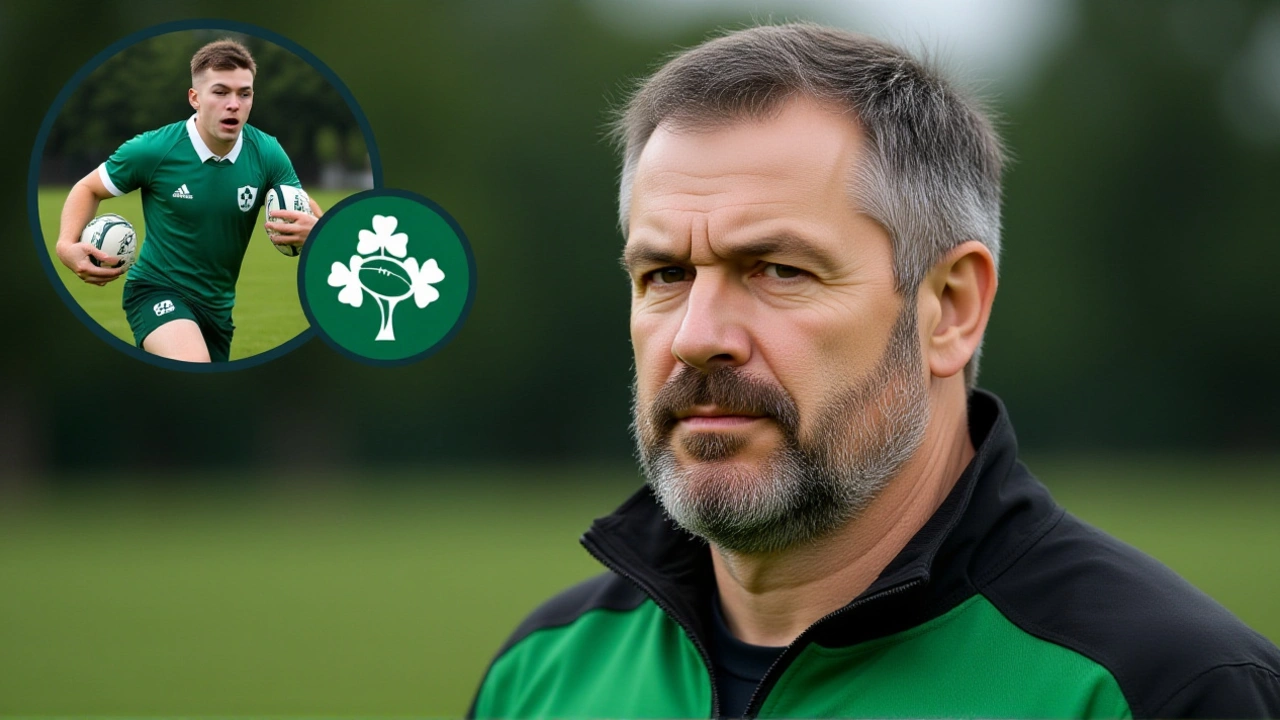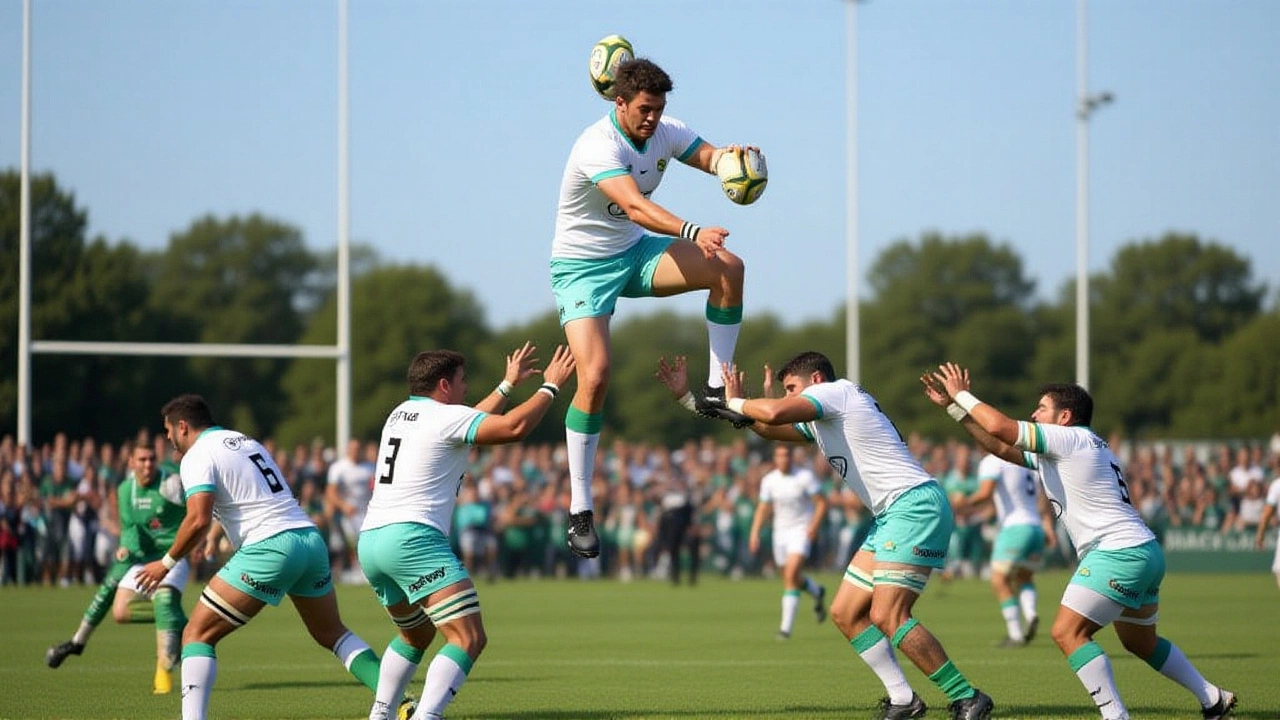When Franco Mostert walked off the field at Stadio Olimpico in Rome on November 16, 2025, he thought his World Rugby season was over. A red card for a high tackle on Italy’s Paul Garbisi had ended his night — and potentially his chance to face Ireland. But less than 72 hours later, the tide turned. On Wednesday, November 19, 2025, at 10:30 AM UTC, World Rugby announced the red card had been rescinded — not just overturned, but expunged from his record. The decision, made after a two-hour hearing on November 18, means Mostert is free to start for the South African national rugby team against Ireland at Dublin’s Aviva Stadium on November 22. It’s a rare win for the Springboks in a season defined by disciplinary setbacks.
What the Panel Saw — And What the Referee Missed
The key to the reversal? Precision. Not emotion. Not precedent. Just pixels and physics. World Rugby’s disciplinary panel, led by New Zealand-based sports law expert Professor David Collis, reviewed 17 video angles — including stadium security footage obtained from the Federazione Italiana Rugby. At the critical moment, 58 minutes and 21.334 seconds into the match, the footage showed a 2.3-centimeter gap between Mostert’s shoulder and Garbisi’s head. That’s less than the width of a thumb. But under World Rugby’s High Tackle Framework, it was enough. "The initial contact point was the shoulder," the panel’s official statement read. "Head contact was secondary, not the main point of impact. Therefore, it does not meet the red card threshold under Law 9.13." That’s the opposite of what referee Nic Berry saw in real time. In the heat of the moment, with Garbisi’s head snapping back, the call was instinctive. But the panel, insulated from crowd noise and the pressure of live decision-making, saw something different: a tackle that was borderline, yes — but not dangerous.The Springboks’ Disciplinary Run — And the Backlash
This wasn’t just about Mostert. It was about a pattern. Since the start of the 2024–2025 international season, four Springbok players had been suspended after disciplinary hearings. Pieter-Steph du Toit got four weeks for a tip tackle in July. Eben Etzebeth sat out three weeks in September after a shoulder-to-head incident. Even lock Lood de Jager was banned two weeks in November for contact with England’s Jonathan Joseph. Rassie Erasmus, the 52-year-old Director of Rugby for the South African Rugby Union, had been public about his frustration. "We’re losing in the boardroom," he said on November 10, 2025. "Players are getting punished for tackles that are legal in every other league in the world." The Mostert case was different. It wasn’t a plea. It was proof.Who Made the Call — And Who Stayed Out
The three-member panel was carefully chosen. Professor David Collis chaired. Sarah Mann, former RFU disciplinary officer, brought English rugby’s institutional memory. And then there was Tendai Mtawarira — the 2019 World Cup-winning Springbok prop, a legend in his own right. Mtawarira, who played alongside Mostert for the Sharks, recused himself from voting. Not out of bias — but out of respect. "I knew him as a teammate," he later told reporters. "I didn’t want anyone to question the integrity of the decision." The vote? Unanimous — 2-0. The result? A landmark moment for player advocacy in rugby.
Why This Matters for Ireland
The Springboks are no longer just defending champions. They’re rebuilding. After a shaky start to the 2025 Autumn Nations Series, they need every asset. Mostert, 34, is a rock in the second row. He brings physicality, lineout reliability, and leadership — especially when paired with Eben Etzebeth, who’s 33 and still playing at an elite level. Without Mostert, coach Jacques Nienaber would’ve had to shuffle his pack, possibly starting 22-year-old debutant Ruan Nortjé — a talented but untested option against Ireland’s powerful forward unit. Now? Nienaber has options. And Ireland — coming off a gritty win over New Zealand — know they’re getting the real thing.What’s Next?
The Springboks will announce their squad for the Ireland match at 12:00 PM UTC on Thursday, November 20. Mostert is all but guaranteed a start. But beyond that, this case could change how World Rugby handles head contact reviews. The panel’s emphasis on "clear daylight" and precise measurements signals a shift toward more technical, less emotional rulings. Teams will now demand video access earlier. Referees may get more time to consult TMOs before issuing red cards. And players? They’ll fight harder — because now, they know the system can be beaten.
Background: The Rise of High Tackle Scrutiny
World Rugby tightened its high tackle rules in 2020, following a series of concussions and public outcry. The goal was safety. The unintended consequence? A wave of controversial red cards, especially against physical teams like South Africa and New Zealand. In 2023, 17 red cards were issued for head contact. In 2024, that jumped to 29. By October 2025, 24 had already been handed out — 11 of them to players from Tier 1 nations. Critics say the rules are being applied inconsistently. This case, with its forensic-level review, might be the turning point.Frequently Asked Questions
How does this affect South Africa’s chances against Ireland?
Mostert’s return gives the Springboks their most experienced second-row pairing since the 2023 World Cup — him and Eben Etzebeth. Ireland’s forward pack, led by Tadhg Furlong and James Ryan, thrives on physicality. Without Mostert, South Africa would’ve been vulnerable in the lineout and scrum. With him, they match Ireland’s power and add tactical nous. This isn’t just a roster change — it’s a game-changer.
Why did it take only two days for the panel to overturn the red card?
The Springboks’ legal team, led by Advocate Michelle Kruis, submitted evidence within hours of the match — including 17 camera angles and precise timestamps. World Rugby’s new protocol for high tackle appeals now prioritizes rapid review for Tier 1 nations during international windows. This wasn’t rushed — it was efficient. The panel had all the data they needed to make a definitive call.
Could this lead to other red cards being reviewed?
Yes. World Rugby confirmed that any player suspended for head contact between November 1 and December 1, 2025, can request a review if new video evidence emerges. Three other cases — including one involving France’s Romain Ntamack — are already under preliminary assessment. This sets a precedent: if the contact wasn’t direct, and there’s measurable distance, the red card may not stand.
What does this mean for referees like Nic Berry?
It’s a reminder that referees are human, and technology is becoming the final arbiter. Berry made the call in real time — and it was reasonable under pressure. But now, match officials know that if a red card is challenged, video evidence will be scrutinized down to the millimeter. Expect more TMO consultations before issuing red cards in high-stakes matches.
Is World Rugby changing its rules because of this case?
Not officially — yet. But insiders say a rule clarification is coming in January 2026. The panel’s wording — "clear daylight" and "secondary contact" — is likely to become formal language in the High Tackle Framework. The goal isn’t to soften penalties, but to make them more precise. Safety remains the priority. Fairness is now part of the equation.
Who benefits most from this decision?
Franco Mostert, obviously — but also every player who’s ever been suspended for a tackle that looked worse than it was. The Springboks’ legal team proved that with the right evidence and timing, the system can be corrected. That’s a win for player rights, not just South African rugby. It shows that justice in sport isn’t always instant — but it can still be right.
